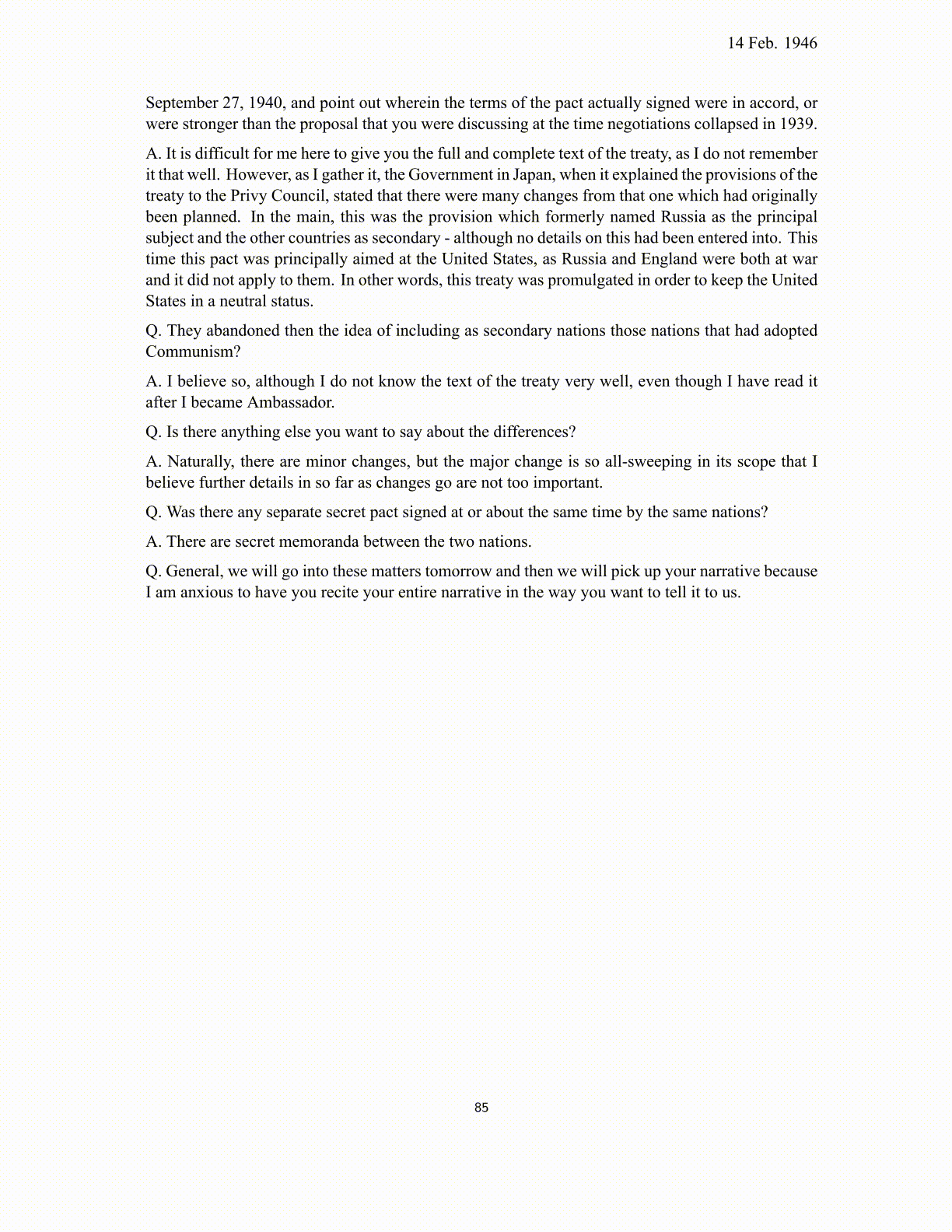
14 Feb. 1946 September 27, 1940, and point out wherein the terms of the pact actually signed were in accord, or were stronger than the proposal that you were discussing at the time negotiations collapsed in 1939. A. It is difficult for me here to give you the full and complete text of the treaty, as I do not remember it that well. However, as I gather it, the Government in Japan, when it explained the provisions of the treaty to the Privy Council, stated that there were many changes from that one which had originally been planned. In the main, this was the provision which formerly named Russia as the principal subject and the other countries as secondary - although no details on this had been entered into. This time this pact was principally aimed at the United States, as Russia and England were both at war and it did not apply to them. In other words, this treaty was promulgated in order to keep the United States in a neutral status. Q. They abandoned then the idea of including as secondary nations those nations that had adopted Communism? A. I believe so, although I do not know the text of the treaty very well, even though I have read it after I became Ambassador. Q. Is there anything else you want to say about the differences? A. Naturally, there are minor changes, but the major change is so all-sweeping in its scope that I believe further details in so far as changes go are not too important. Q. Was there any separate secret pact signed at or about the same time by the same nations? A. There are secret memoranda between the two nations. Q. General, we will go into these matters tomorrow and then we will pick up your narrative because I am anxious to have you recite your entire narrative in the way you want to tell it to us. 85